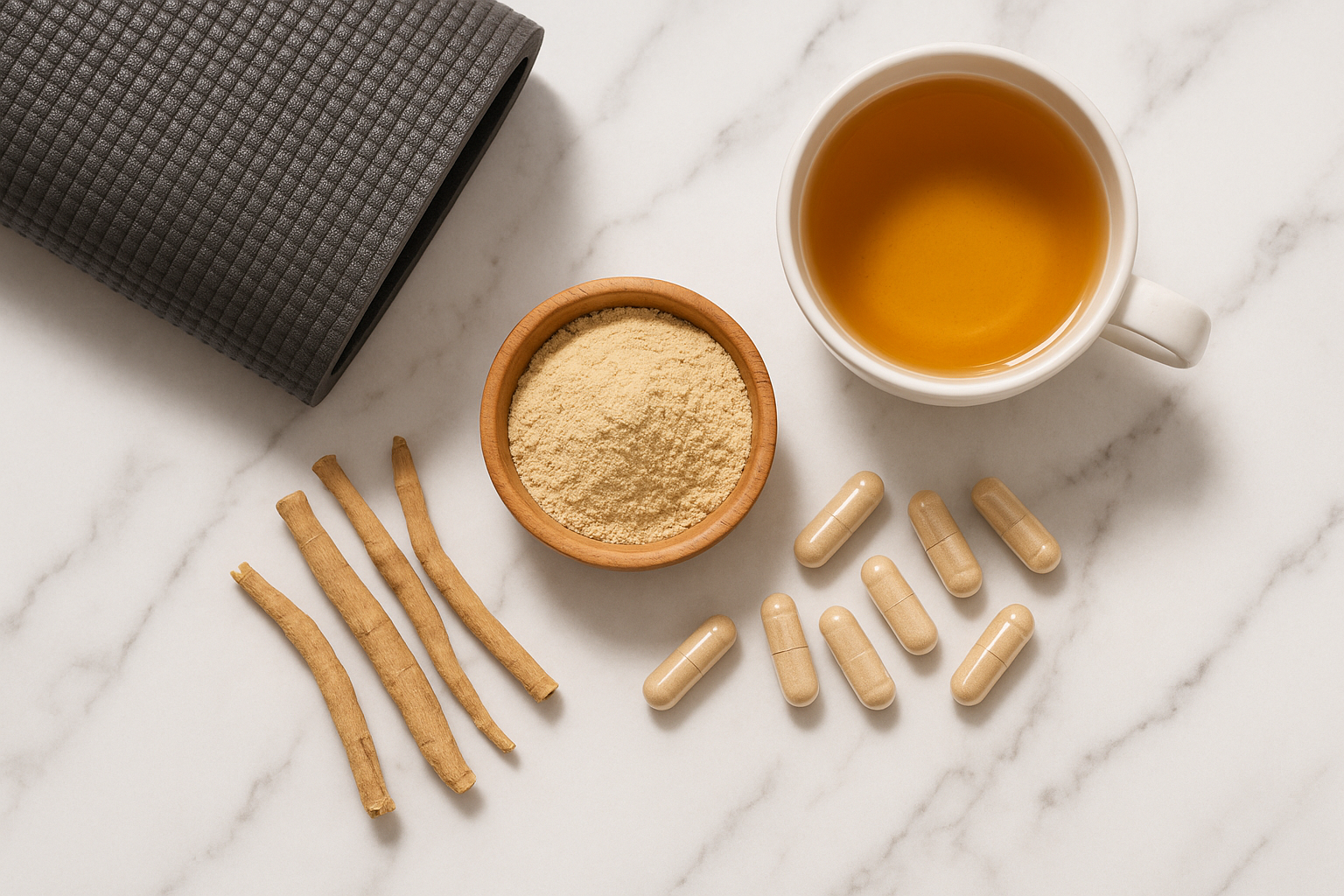In an age where wellness and mental resilience are more important than ever, the spotlight is turning back to nature’s pharmacy. Ashwagandha (Withania somnifera), a powerful herb used for centuries in Ayurvedic medicine, is experiencing a resurgence this time backed by rigorous scientific validation. A landmark systematic review published in the Journal of Herbal Medicine (2021) by Adrian L. Lopresti and Stephen J. Smith assessed 41 human clinical trials and confirmed that Ashwagandha offers real benefits across mental and physical health conditions.

A Scientific Look at a Traditional Remedy
Ashwagandha, often called “Indian ginseng” or “winter cherry,” is known for its adaptogenic properties—helping the body adapt to stress. While anecdotal praise is abundant, this review gives us credible insights into its performance based on clinical data.
The authors screened over 1,300 studies and included 41 human trials in their review, following strict PRISMA guidelines. Most were randomized, double-blind, placebo-controlled—gold-standard formats in scientific research. The trials spanned conditions like stress, anxiety, sexual function, athletic performance, cognition, pain, fatigue, diabetes, and more.
Stress and Anxiety: A Natural Calmer
Seven randomized controlled trials (491 participants) found that Ashwagandha significantly reduced symptoms of stress and anxiety. Participants taking standardized Ashwagandha root extract experienced improved scores on validated anxiety scales. The effect is largely attributed to its ability to reduce cortisol—our body’s primary stress hormone—offering a non-sedating alternative to pharmaceutical anxiolytics.
Fertility and Sexual Wellness
Ashwagandha’s role in improving sexual function and fertility is also well-supported. Eight trials showed significant improvements in sperm count, motility, morphology, and hormone levels such as testosterone and LH in both healthy men and those with infertility issues. These benefits were linked to the herb’s antioxidant properties, which help counter oxidative stressa major contributor to reduced fertility.
Cognitive and Physical Performance
The review found evidence of Ashwagandha’s potential as a nootropic. Three trials showed improvements in memory, reaction time, and overall cognitive performance, likely due to neuroprotective and mitochondrial-enhancing effects. In athletes and fitness enthusiasts, five trials reported improvements in strength, endurance, and recovery time.
These performance gains were linked to Ashwagandha’s ability to reduce exercise-induced stress and support oxygen consumption.

Additional Health Benefits
The herb also showed promise in:
Thyroid support: Two studies noted improvements in hypothyroid symptoms and T3/T4 hormone levels.
Diabetes management: Four studies showed improved insulin sensitivity and fasting glucose levels.
Pain and fatigue: Reduced inflammatory markers and subjective fatigue were noted in several trials.
Mental health disorders: Improvements in schizophrenia symptoms, OCD, and insomnia were documented, though with smaller sample sizes.
How Does Ashwagandha Work?
Ashwagandha exerts its effects through multiple physiological pathways:
Cortisol regulation reduces stress and balances mood.
Androgenic and anabolic effects support muscle growth and fertility.
Anti-inflammatory and antioxidant activity helps reduce cellular stress.
Neurotransmitter support (GABA, serotonin) enhances mood and cognition.
In animal and in vitro studies, Ashwagandha also showed anti-diabetic, anti-cancer, and neuroregenerative potential—indicating future research directions.
Safety and Side Effects
Most studies reported excellent tolerability. Adverse effects were rare and mild—typically limited to indigestion or joint pain. No serious adverse events were consistently observed, making it a promising candidate for long-term use. However, the review emphasized that dosing, extract standardization, and treatment durations varied across studies, making generalizations difficult.
Limitations and Future Directions
Despite promising results, limitations remain:
Many studies were short-term (8–12 weeks).
Variability in extracts (KSM-66, Sensoril, Shoden, non-standardized).
Most studies had relatively small sample sizes.
Future studies should focus on standardized formulations, longer durations, and broader populations to confirm these results. Meta-analyses will become feasible once larger, homogeneous trials are published.
Final Thoughts: Is Ashwagandha Right for You?
Ashwagandha emerges from this review as a scientifically credible herbal supplement for managing stress, improving fertility, enhancing cognitive and athletic performance, and supporting general wellness. It offers a holistic approach that appeals to both modern science and traditional wisdom.
Whether you’re a busy professional battling burnout, an athlete looking to optimize recovery, or someone managing chronic stress or hormonal imbalance Ashwagandha might be the natural support you need.
As with any supplement, consult with a healthcare provider before beginning Ashwagandha, especially if you are on medications or managing chronic conditions.
References & Further Reading:
Lopresti, A.L., Smith, S.J. (2021). Ashwagandha (Withania somnifera) for the treatment and enhancement of mental and physical conditions: A systematic review of human trials. Journal of Herbal Medicine, 28, 100434.

